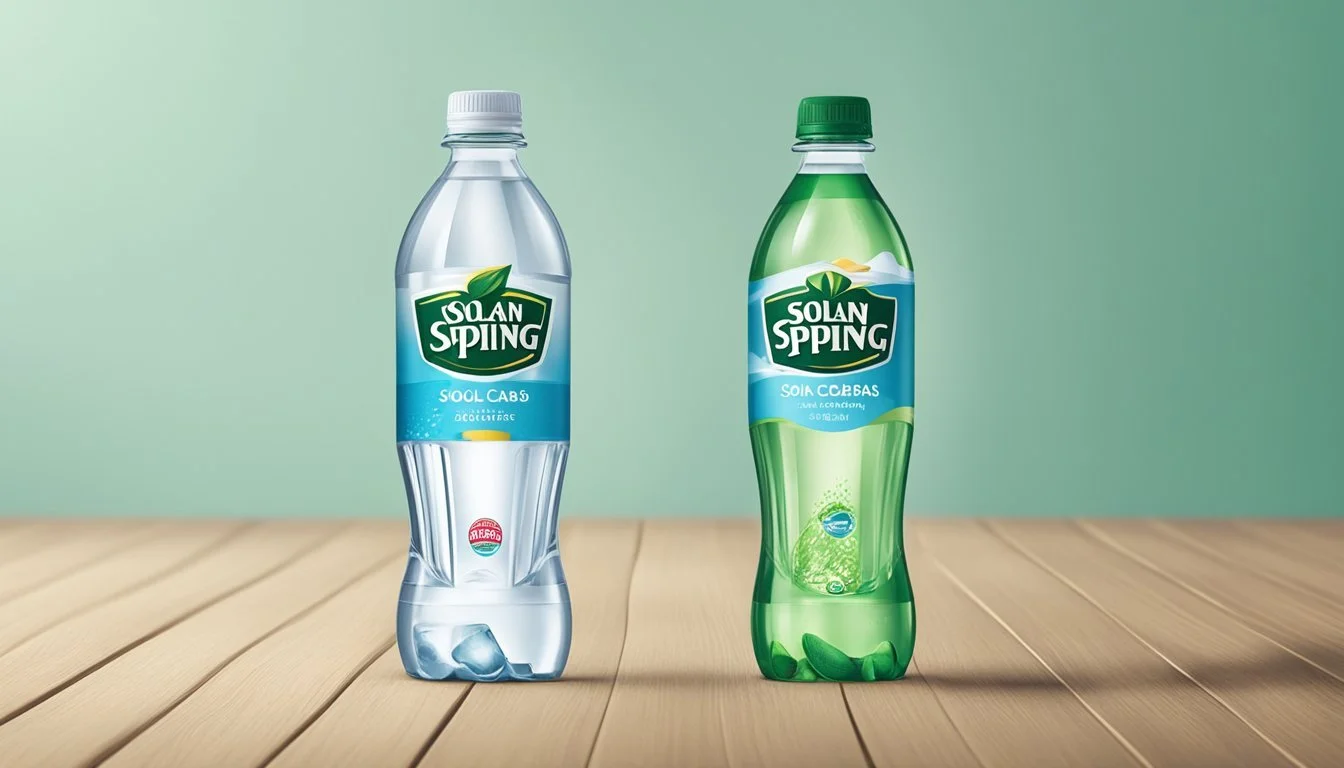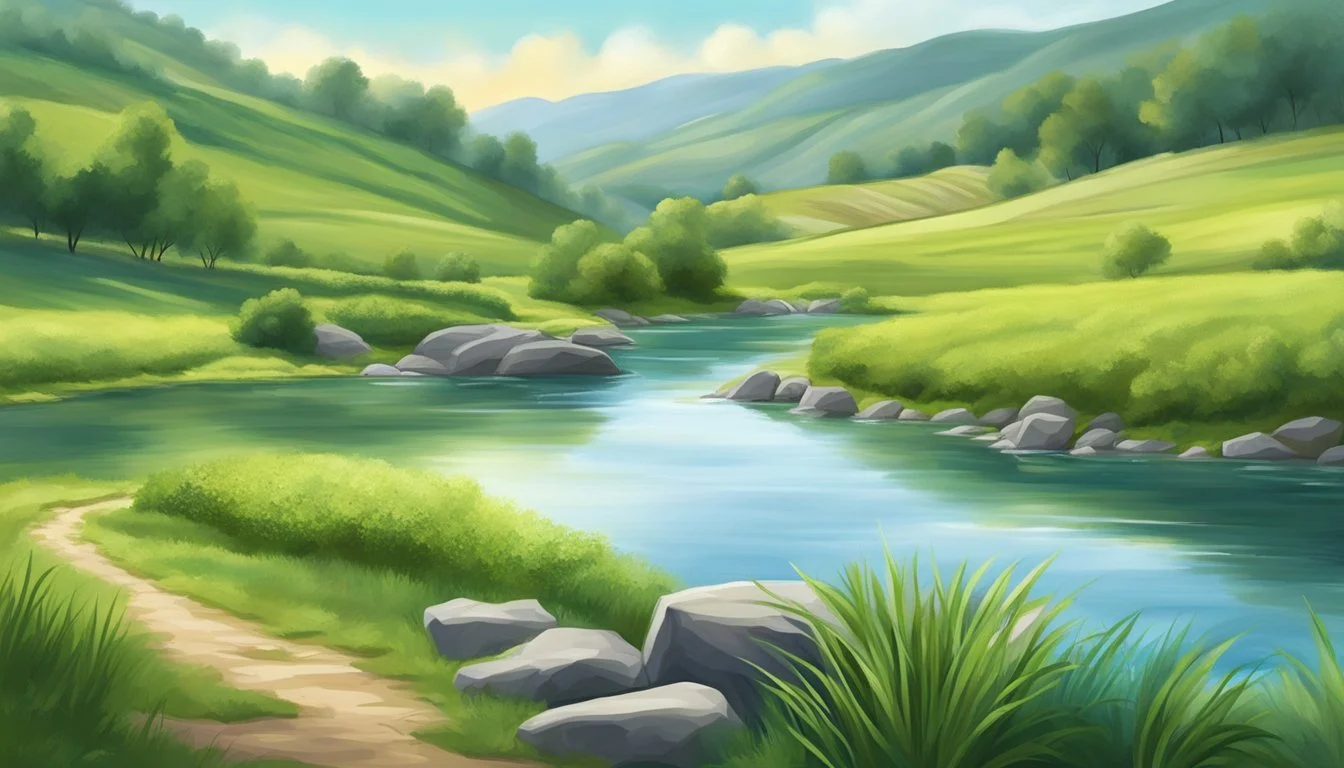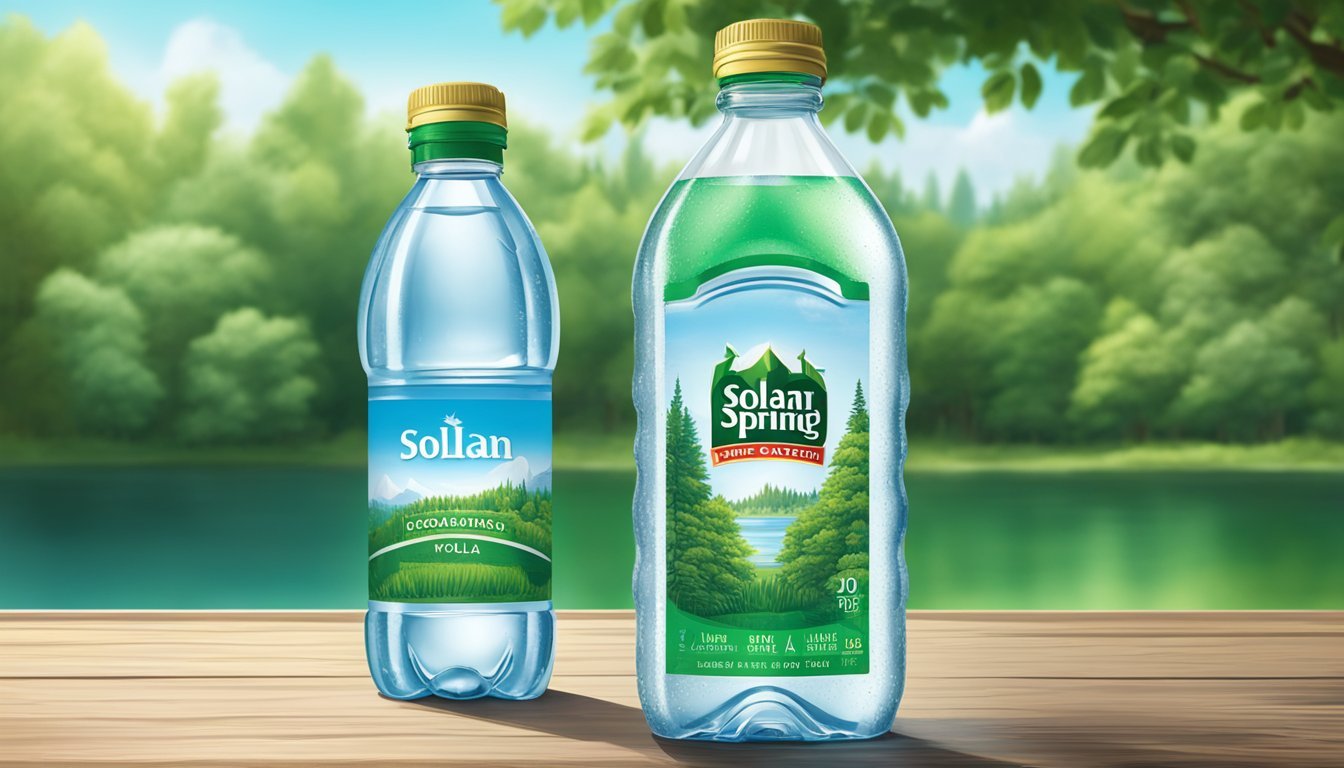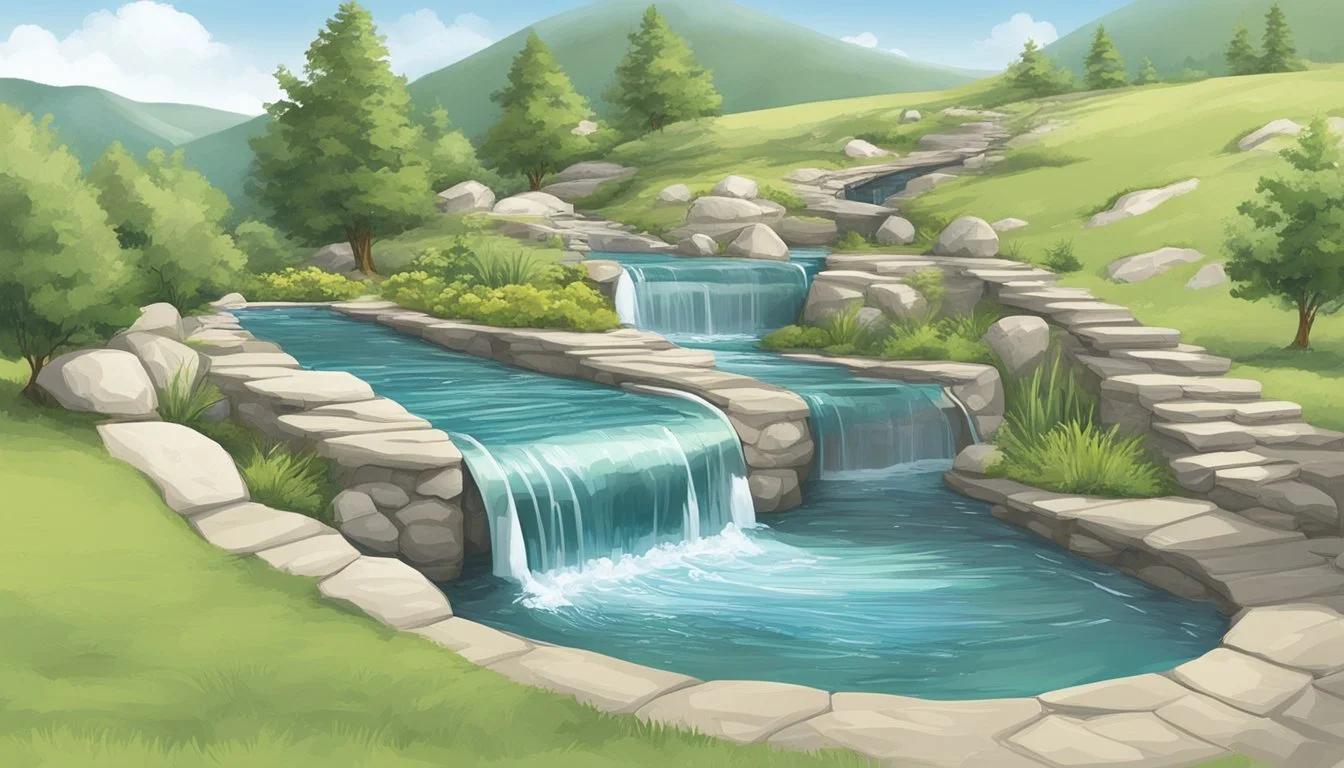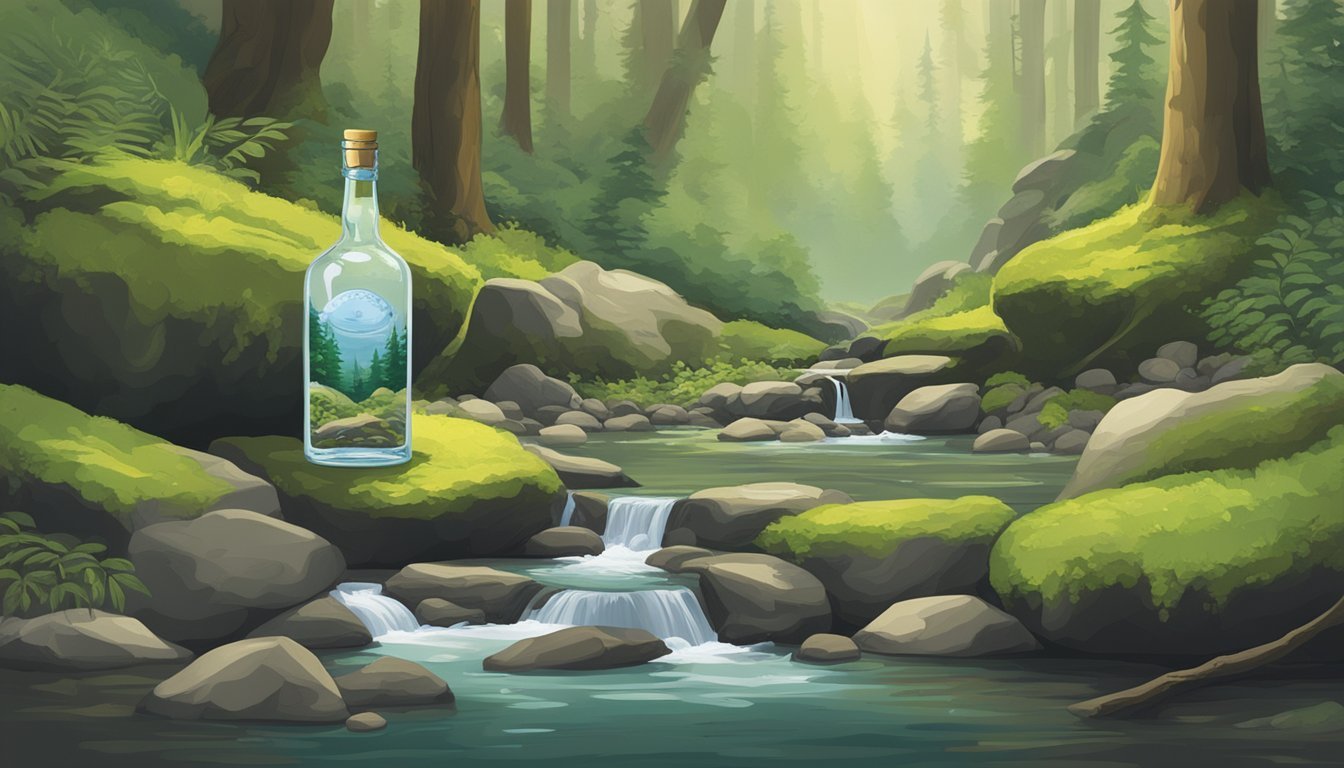Poland Spring vs. Solán de Cabras
Comparing Bottled Water Quality
When comparing Poland Spring and Solán de Cabras, two prominent bottled water brands, consumers often seek the best in taste, hydration, and quality. Poland Spring, a staple in the American market, offers spring water sourced from various locations in Maine. It prides itself on its longstanding history and commitment to providing refreshing hydration.
Solán de Cabras, on the other hand, hails from Spain and is renowned for its distinctive smoothness and mineral content. Its source, located in a nature reserve, contributes to its unique taste profile that many find exceptionally pleasant. When choosing between these two brands, Solán de Cabras often stands out for its premium quality and unique flavor, whereas Poland Spring is favored for its widespread availability and reliable taste.
Both brands cater to different preferences and priorities, whether it's the familiar taste of Poland Spring or the refined essence of Solán de Cabras. Understanding these differences can help consumers make the best choice for their hydration needs.
History and Origin
Both Poland Spring and Solán de Cabras have rich histories that highlight their origins and the natural springs from which they draw their water.
Poland Spring: From Maine’s Natural Springs
Poland Spring is deeply rooted in the state of Maine, tracing its beginnings back to 1859.
Hiram W. Ricker, the owner of a local inn, began bottling water from a natural spring in the town of Poland, Maine. The brand gained popularity for its clean, crisp taste, and was marketed as a health tonic in the late 19th century.
By 1901, Poland Spring had established itself as a prominent name in bottled water. Over time, it became part of BlueTriton Brands, formerly known as Nestlé Waters North America. Today, Poland Spring continues to source its water from natural springs across Maine, maintaining its reputation for quality and purity.
Solán de Cabras: Spanish Heritage
Solán de Cabras originates from the Serranía de Cuenca in Spain, with a history spanning more than 3,600 years. The natural spring water is believed to have been discovered by ancient civilizations and was documented for its healing properties.
The brand's name, meaning “Spring of the Goats,” is tied to folklore that attributes the discovery of its source to goats led by thunderstorms to the spring.
In modern times, Solán de Cabras has been recognized for its pristine and mineral-rich water, sourced from deep aquifers in the region. Its distinctive blue bottle symbolizes purity and has made it a staple in Spain and beyond, known for both its heritage and commitment to natural quality.
Water Sources and Aquifers
Poland Spring and Solán de Cabras offer unique insights into different water sources and aquifers. Each brand provides 100% natural spring water, sourced from distinct geographical locations with noteworthy characteristics.
Exploring Poland Spring Source
Poland Spring sources its water from multiple springs in Maine, USA. The brand's name comes from Poland Spring in Poland, Maine, which was its original and most famous source. The water is naturally filtered through sand and gravel before being extracted from underground aquifers.
Maine's natural surroundings, with abundant forests and wetlands, contribute to the purity and mineral composition of Poland Spring water. The groundwater collects in these aquifers, ensuring a steady supply of fresh water. This sourcing method adheres to stringent quality controls, guaranteeing that the water is free from contaminants.
Understanding Solán de Cabras Water Source
Solán de Cabras water comes from a single source located within the Solán de Cabras Nature Preserve in Spain's Cuenca province. The spring is situated in the mountainous region, providing a pristine environment for water collection.
The water from this spring is revered for its consistent mineral balance, shaped by its natural geological surroundings. It passes through underground limestone formations, which naturally enrich the water with minerals. The isolated nature of the preserve ensures limited human interference, maintaining the water’s purity. This source is not only valued for its mineral content but also for the historical significance of the location, having been utilized for centuries.
Purity and Mineral Content
Both Poland Spring and Solán de Cabras offer unique characteristics in terms of purity and mineral content, making them popular choices for bottled water consumers. This section explores how each brand maintains its purity and highlights the minerals present in each water.
Natural Filtration and Purity Standards
Poland Spring sources its water from natural springs in Maine, undergoing rigorous testing and filtration processes to maintain high purity standards. The water is naturally filtered through sand and gravel, which helps preserve its cleanliness.
Solán de Cabras, originating from the Serranía de Cuenca in Spain, claims a unique filtration process through volcanic rock. The water spends 3,600 years filtering, resulting in untouched purity.
Both brands use carbon filtration and UV light treatment to ensure safety. Poland Spring adds ozonation as an extra step, while Solán de Cabras prides itself on minimal human intervention, maintaining the water's natural state as much as possible.
Identifying Key Minerals in Bottled Water
Poland Spring contains essential minerals such as calcium, magnesium, and potassium, contributing to its crisp taste. The mineral content is well-balanced, making it suitable for daily hydration.
Solán de Cabras boasts a unique mineral composition due to its extended natural filtration period. This water is known for higher levels of bicarbonates, silica, and magnesium, offering a distinct, smooth taste.
A comparative table might look like this:
Brand Calcium (mg/L) Magnesium (mg/L) Potassium (mg/L) Bicarbonates (mg/L) Silica (mg/L) Poland Spring 5-15 1-5 1-3 5-10 N/A Solán de Cabras 6-10 2-4 N/A 150-200 20-40
By understanding the filtration processes and mineral content, consumers can make informed choices based on their hydration preferences and dietary needs.
Taste and Quality Assessment
When comparing Poland Spring and Solán de Cabras, two key aspects to consider are the role of minerals in their taste and their overall flavor and refreshing qualities. This allows for a nuanced evaluation of which bottled water may suit different preferences better.
The Role of Minerals in Taste
Minerals significantly impact the taste profile of bottled water. Poland Spring is sourced from natural springs in Maine, and its mineral content varies by source. Typically, it contains calcium, magnesium, and sodium.
These minerals can give Poland Spring a subtle, crisp taste, making it a popular daily drinking water.
Solán de Cabras, originating from the Serranía de Cuenca in Spain, is known for its higher mineral levels, particularly calcium and magnesium. These minerals contribute to its unique, slightly sweet taste. The balanced mineral content also enhances the water's refreshing qualities, making Solán de Cabras stand out as a premium choice for those looking for a more distinct flavor in their bottled water.
Evaluating Flavor and Refreshing Qualities
Poland Spring's flavor is often described as clean and neutral, which makes it highly versatile for various activities, from hydration during exercise to casual consumption. The taste is subtle, and the water lacks any overwhelming mineral notes.
This balance is appealing to a wide audience.
Solán de Cabras offers a more pronounced flavor profile. The higher mineral content lends a slight sweetness and a velvety texture, which some might find more refreshing and satisfying. It stands out in taste tests for its purity and refinement, traits likely attributed to its ancient source.
For those seeking superior refreshment with a unique taste, Solán de Cabras may be more desirable, whereas Poland Spring offers a familiar and reliable option.
Health and Hydration Benefits
Both Poland Spring and Solán de Cabras offer distinct health and hydration benefits due to their natural mineral compositions. These advantages can be better understood by examining the hydration efficiency and electrolyte content of each water type.
Hydration Efficiency of Natural Spring Waters
Natural spring waters like Poland Spring and Solán de Cabras are praised for their hydration efficiency. These waters are sourced from natural springs, ensuring a pure, refreshing taste and high-quality hydration.
Poland Spring water is drawn from springs in Maine, providing good hydration due to its balanced mineral content. Solán de Cabras, sourced from the Serranía de Cuenca Mountains in Spain, is known for its pristine quality and mineral composition, enhancing its hydrating properties.
Electrolyte Content and Health Impact
Electrolytes play a crucial role in maintaining bodily functions and overall health. Both brands contain essential electrolytes like magnesium and calcium, which aid in muscle function and bone health.
Poland Spring:
Magnesium: Moderate levels, supporting muscle and nerve function.
Calcium: Present, benefiting bone strength and teeth health.
Solán de Cabras:
Magnesium: Higher concentration than many other waters, making it beneficial for cardiovascular health.
Calcium: Additionally high, aiding in effective hydration and bone health.
The unique mineral profiles of these bottled waters provide significant health benefits alongside superior hydration, catering to diverse consumer needs.
Filtration and Purification Processes
Understanding how Poland Spring and Solán de Cabras treat their water helps to highlight distinct methods they use to maintain water purity and quality. Each brand employs unique techniques that emphasize natural and technological processes to remove contaminants.
Poland Spring’s Filtration Approach
Poland Spring uses a natural filtration process where water seeps through layers of sand, gravel, and rock formations. This natural method effectively removes contaminants and impurities. Their filtration process benefits from the geological characteristics of their spring sources.
In addition to the natural process, Poland Spring adheres to standards set by regulatory authorities like the EPA. They perform extra filtration steps, including carbon filtering, to ensure the water is free from harmful contaminants. This combined approach helps maintain the brand’s reputation for providing clean and safe drinking water.
Solán de Cabras’ Purification Techniques
Solán de Cabras utilizes a patient natural filtration process, developed over centuries. The water undergoes extensive filtration through underground volcanic mountains, collecting unique minerals that contribute to its distinct taste and health benefits. The natural environment ensures minimal human intervention in the filtration process.
The brand emphasizes purity, maintaining water quality by foregoing aggressive purification methods like reverse osmosis which can strip water of essential minerals. Instead, they rely on the geological features of their source to enhance the water’s mineral composition while effectively removing contaminants. This approach preserves the natural properties of the water known since its discovery by the Romans.
Environmental Impact and Sustainability
Poland Spring and Solán de Cabras address eco-friendly practices through their production methods and packaging innovations. These aspects are crucial in considering each brand's environmental impact and sustainability efforts.
Bottled Water Production and Eco-Friendliness
Poland Spring, a Nestlé brand, sources its water from springs in Maine. They focus on minimizing environmental disruption during water extraction.
Solán de Cabras, sourced from Spain, emphasizes natural sustainability. The water comes from a spring maintained within a nature preserve, ensuring minimal ecological disturbance.
Both brands aim to reduce their carbon footprint via efficient manufacturing processes, though methods vary by region and regulation.
Efforts Towards Sustainable Packaging
Poland Spring uses recycled PET (rPET) for many of its bottles, showcasing a commitment to reducing plastic use. Initiatives include a goal to increase the proportion of recycled materials in packaging.
Solán de Cabras employs glass bottles, which are more environmentally friendly due to recyclability and reduced single-use plastic dependency. Their packaging aligns with goals to lower the overall carbon footprint.
Each brand's packaging strategy highlights their dedication to sustainable practices, reflecting broader industry trends seen in companies like Coca-Cola. Such packaging choices are designed to appeal to increasingly eco-conscious consumers.
Packaging and Convenience
Both Poland Spring and Solán de Cabras offer unique packaging that influences their portability and overall user experience. Here's a closer look at their bottle designs and materials, as well as the overall convenience they provide.
Comparing Bottle Designs and Materials
Poland Spring features a classic, practical design with a focus on functionality. The bottles are made from PET plastic, which is both lightweight and recyclable. This makes them easy to carry and dispose of responsibly. Additionally, Poland Spring bottles often come with a sleek, contoured shape to enhance grip.
Solán de Cabras, on the other hand, prioritizes aesthetics and elegance. Its bottles are crafted from high-quality glass, offering a premium feel and look. The unique blue-tinted glass not only stands out visually but also protects the water from light exposure, potentially preserving its taste.
Evaluating Portability and Convenience Factors
When it comes to portability, Poland Spring excels with its lightweight plastic bottles. They are easy to toss into a bag or backpack without adding significant weight. The plastic material also prevents breakage, making them suitable for on-the-go use.
Solán de Cabras, while luxurious, may pose challenges in terms of convenience. Glass bottles are heavier and more fragile, requiring careful handling. They are less ideal for activities like hiking or traveling. However, for more stationary settings where aesthetics are valued, such as dining tables or office desks, Solán de Cabras offers a premium and elegant choice.
Branding and Market Presence
Poland Spring and Solán de Cabras adopt distinct branding strategies that reflect their origins and target markets. Their market presence is shaped by consumer preferences and availability in various regions.
Analysis of Brand Strategies
Poland Spring emphasizes its heritage and purity, originating from Maine, USA. Owned by Nestlé Waters, the brand focuses on natural spring water, positioning itself as a product of trust and reliability.
Solán de Cabras, a premium brand from Spain, highlights luxury and wellness. Its unique blue bottle and claims of natural mineral content aim to attract health-conscious, upscale consumers.
Both brands use third-party endorsements to validate quality, but their visual and emotional appeals differ significantly to attract their respective audiences.
Market Share and Consumer Preference
Poland Spring enjoys broad market presence in the USA, being widely available across supermarkets and convenience stores. It is often priced competitively to appeal to a wide demographic.
Solán de Cabras, in contrast, targets a niche market with its premium pricing and limited availability outside Europe. It appeals to consumers seeking high-end, natural mineral water.
Each brand's market share reflects its strategy, with Poland Spring capturing mass market consumers and Solán de Cabras catering to a select, upscale clientele.
By understanding these market dynamics, consumers can better evaluate which brand aligns with their priorities.
Legal and Ethical Considerations
Poland Spring and Solán de Cabras both face distinct legal and ethical challenges in the bottled water industry, focusing on litigation and sourcing transparency.
Legal Challenges and Class Action Lawsuits
Poland Spring has encountered significant legal issues, including lawsuits about false advertising. Recent litigation claims that Poland Spring's water does not come from natural springs as advertised.
Additionally, accusations regarding the presence of harmful microplastics complicate Poland Spring's legal stance. In response, consumers argue the company mislabels its products, leading to multiple class action lawsuits.
Solán de Cabras has faced fewer legal challenges. Nevertheless, maintaining accurate labeling and sourcing practices is essential for avoiding potential legal disputes.
Ethical Water Sourcing and Claims
Poland Spring and Solán de Cabras emphasize ethical sourcing and sustainability in their marketing. Poland Spring claims to source from natural springs, but recent lawsuits challenge these assertions.
Consumers demand greater transparency about water sourcing and environmental impact, creating reputational risks. Solán de Cabras promotes its water's purity and ethical sourcing from Spain's mountainous regions.
Both companies must address consumer concerns and ensure truthful claims about the environmental footprint of their bottling processes. Maintaining ethical standards is vital for consumer trust and brand integrity.
Final Thoughts
When comparing Poland Spring and Solán de Cabras, several key factors come into play.
Quality is paramount. Poland Spring is sourced from multiple locations in Maine and is known for its affordability. However, concerns about microplastics have been raised. Solán de Cabras, on the other hand, comes from a single spring in Spain and is often praised for its purity and mineral content.
Preference varies among consumers. Some prefer the taste and accessibility of Poland Spring. Others might lean towards the distinctive taste and higher price point of Solán de Cabras, which is often seen as a premium option.
In terms of environmental impact, both brands face scrutiny. Poland Spring has faced legal challenges regarding its sourcing and plastic use. Solán de Cabras promotes its eco-friendly packaging, but the global shipment still poses environmental concerns.
Ultimately, choosing between these brands depends on individual priorities. Be it cost, perceived quality, or environmental considerations, both have their unique selling points. While Poland Spring offers a cost-effective solution, Solán de Cabras provides a premium experience.
More About Poland Spring
Acqua Panna vs Poland Spring: Which Bottled Water is Better?
Boxed Water vs Poland Spring: Which Bottled Water is Better?
Core Hydration vs Poland Spring: Which Bottled Water is Better?
Ice Mountain vs Poland Spring: Which Bottled Water is Better?
Icelandic Glacial vs Poland Spring: Which Bottled Water is Better?
Mountain Valley Spring Water vs Poland Spring: Which Bottled Water is Better?
Nestle Pure Life vs Poland Spring: Which Bottled Water is Better?
Poland Spring vs Aqua Carpatica: Which Bottled Water is Better?
Poland Spring vs Cascade Mountain: Which Bottled Water is Better?
Poland Spring vs Castle Rock: Which Bottled Water is Better?
Poland Spring vs Crystal Geyser: Which Bottled Water is Better?
Poland Spring vs Crystal Lake: Which Bottled Water is Better?
Poland Spring vs Essence pH10: Which Bottled Water is Better?
Poland Spring vs Hawaii Volcanic: Which Bottled Water is Better?
Poland Spring vs Hawaiian Springs: Which Bottled Water is Better?
Poland Spring vs Kirkland Signature: Which Bottled Water is Better?
Poland Spring vs Liquid Death: Which Bottled Water is Better?
Poland Spring vs Proud Source: Which Bottled Water is Better?
Poland Spring vs Purely Sedona: Which Bottled Water is Better?
Poland Spring vs Richard's Rainwater: Which Bottled Water is Better?
Poland Spring vs San Pellegrino: Which Bottled Water is Better?
Poland Spring vs Simple Truth: Which Bottled Water is Better?
Poland Spring vs Talking Rain AQA: Which Bottled Water is Better?
Poland Spring vs Weird Water: Which Bottled Water is Better?
Poland Spring vs Whole Foods 365: Which Bottled Water is Better?
Poland Spring vs Whole Foods Italian Still Mineral water: Which Bottled Water is Better?
Poland Spring vs Zephyrhills: Which Bottled Water is Better?

